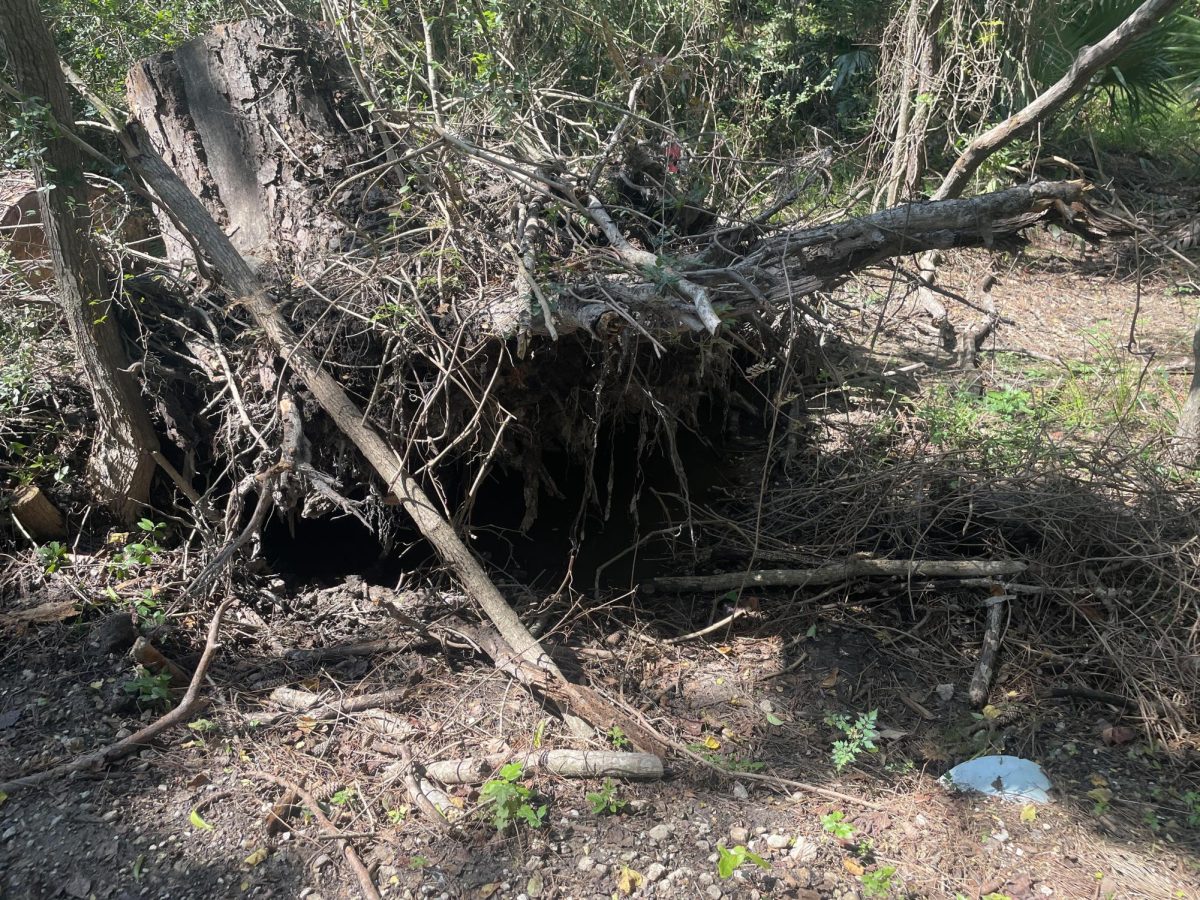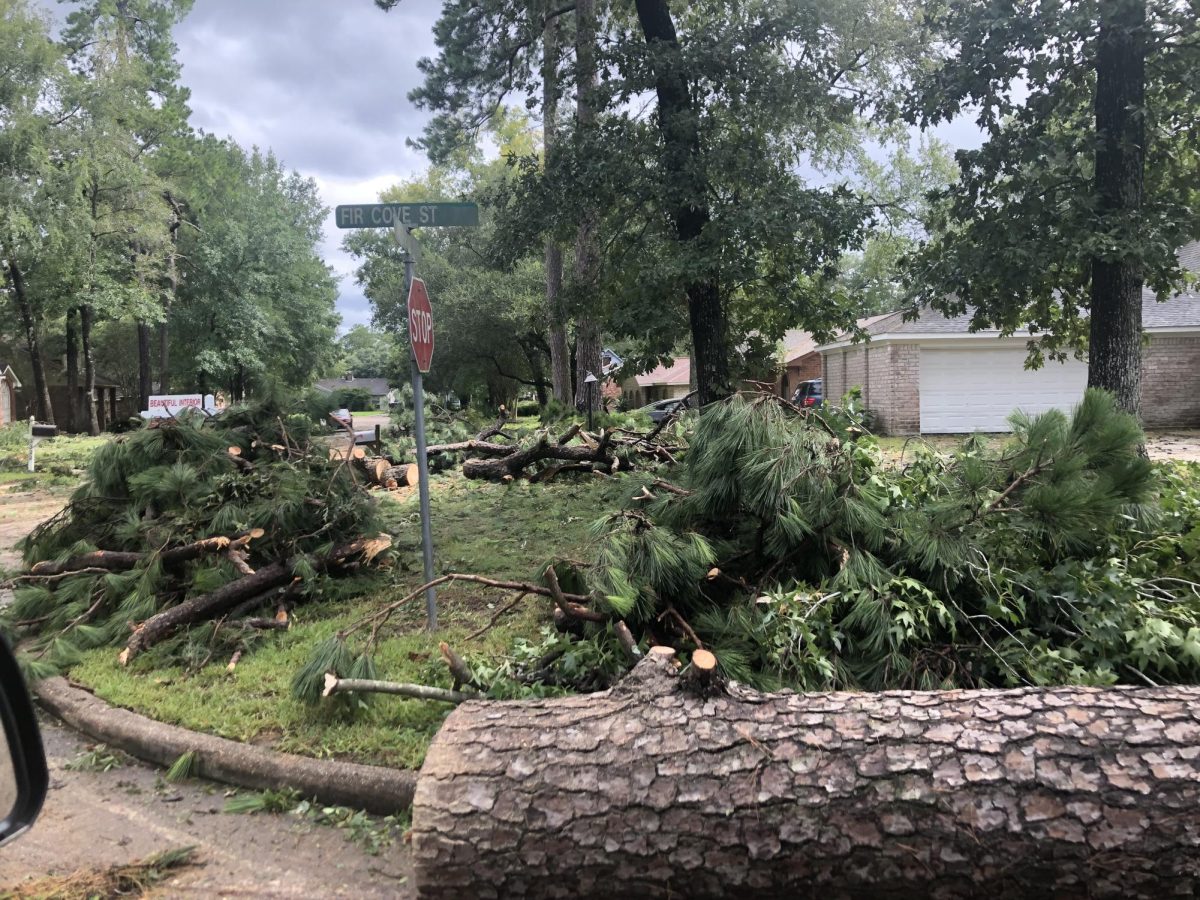Hurricane Beryl leaves lasting impact on Kingwood
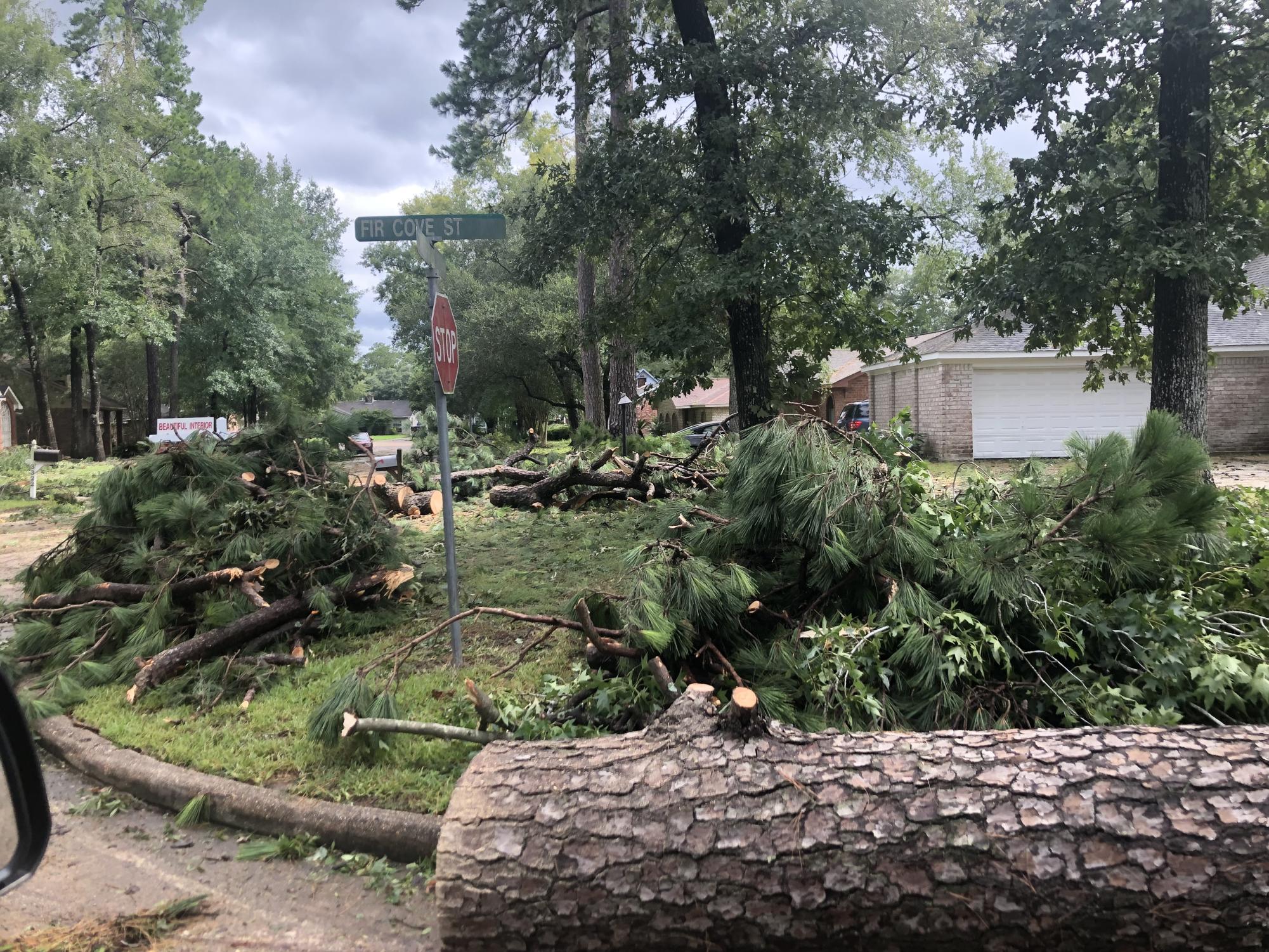
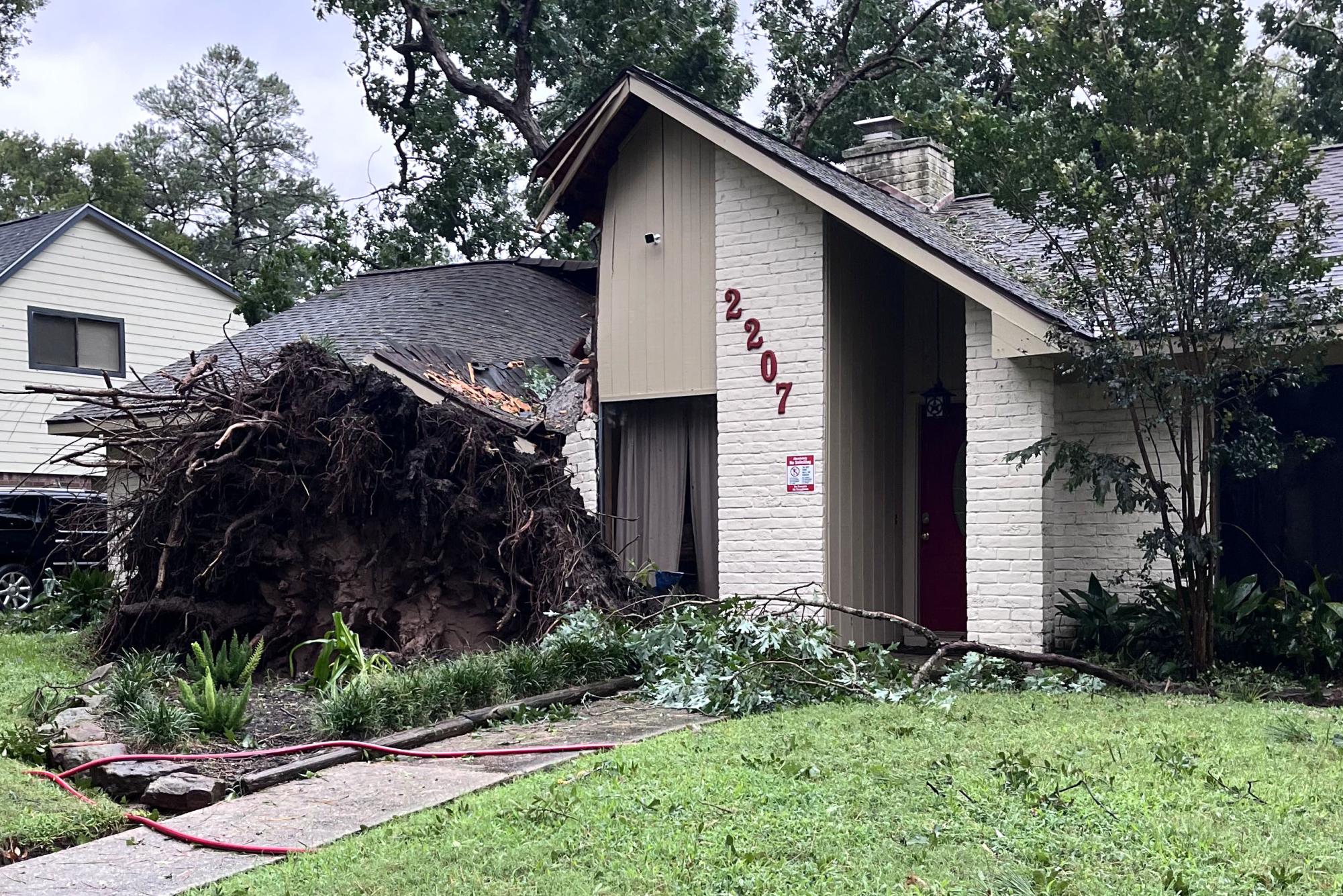
Hurricane Beryl hit Houston Texas as a Category 1 hurricane on July 8. Beryl caused a lot of damage with sustained winds of 80 mph. Trees were destroyed and power lines were severely damaged.
Read the original story and watch the video published just days after Beryl hit about how residents handled the destruction in the first few days.
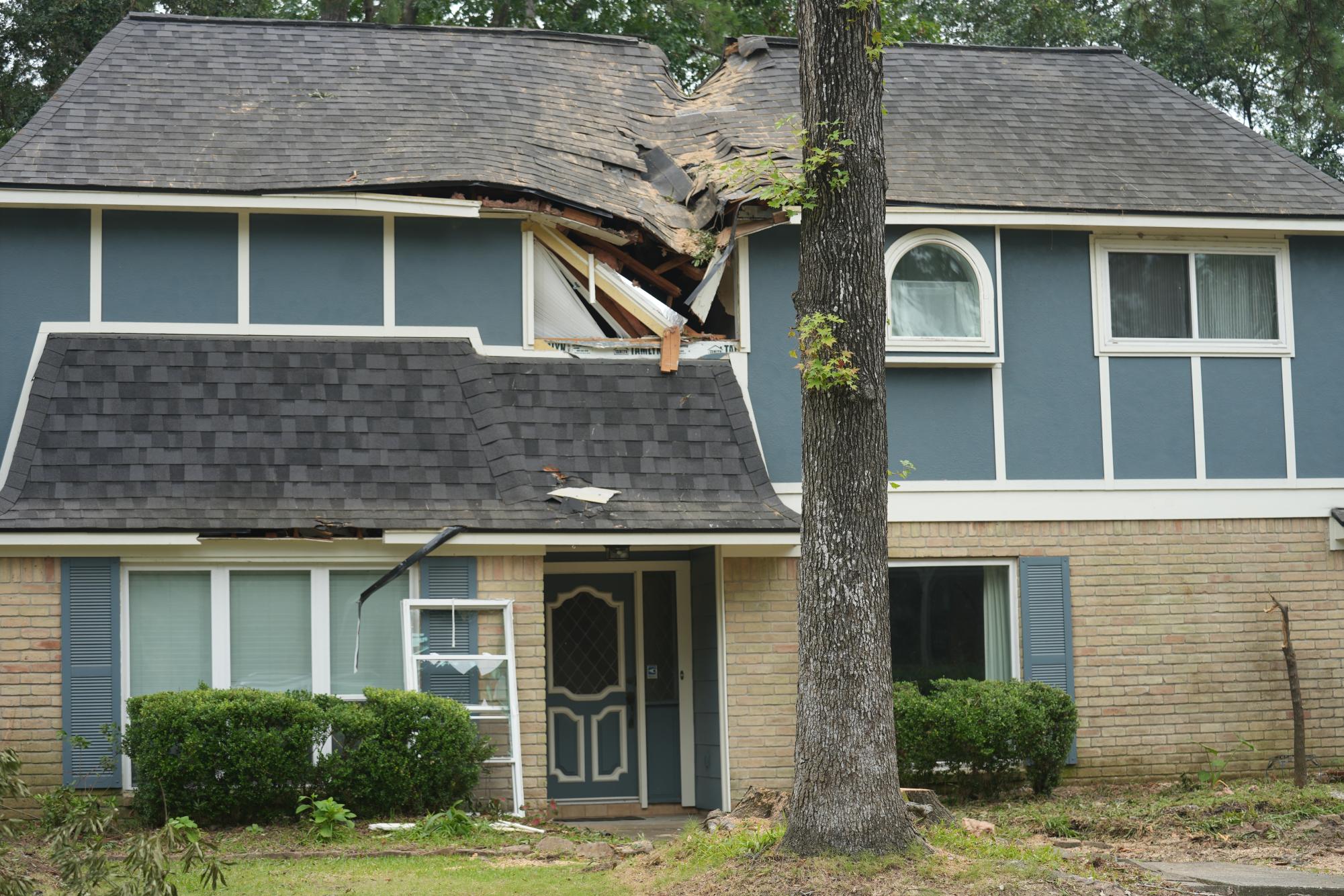
Families like Maebeth Potter are currently waiting as their home is rebuilt after being crushed by a tree. Read her story and scroll for more.
CEO of Maryland Marketing Resources Christopher Spara, who thinks of himself as a hurricane “expert,” was affected by the tragedy of Beryl in July. As he woke up on that Monday morning, he was met with devastation right there in his backyard.
“We have a lot of tall trees,” Spara said. “[We have] very tall pine trees close to the house. So, I think that was what I was concerned about just hearing the wind whip through and hoping that a tree didn’t fall and land on our house.”
When Beryl hit, Houstonians were left without power. Although it was just a Category 1 storm, many people were preparing for the storm. In fact, many people left Houston and opted to wait out the hurricane somewhere drier. Others prepared by stocking up on canned goods and hoping for the best, which is the route that Spara took.
“We [made sure we] got plenty of food, [and] kind of put things away because we knew that the winds were going to get pretty high, which was a little bit different than past storms,” Spara said. “Wind was a factor, so I just made sure that there wasn’t anything outside as far as furniture or stuff that could blow around and possibly go through some windows.”
Throughout Beryl, destruction ran rampant throughout the streets of Kingwood. All of its residents, including Spara, lost power. Some lost even more than that, as an estimate of 50% of all urbanized area’s trees fell. In addition, 36 people died due to storm-related injuries.
Fortunately for Spara, his family wasn’t affected by much more than the outages. He said he’s lived in Kingwood for over 11 years, and that hurricanes are just “normal, everyday things.”
“I think you just got to kind of prepare for the worst round here,” Spara said. “It’s one of those things that you kind of learn a little bit more each time.”
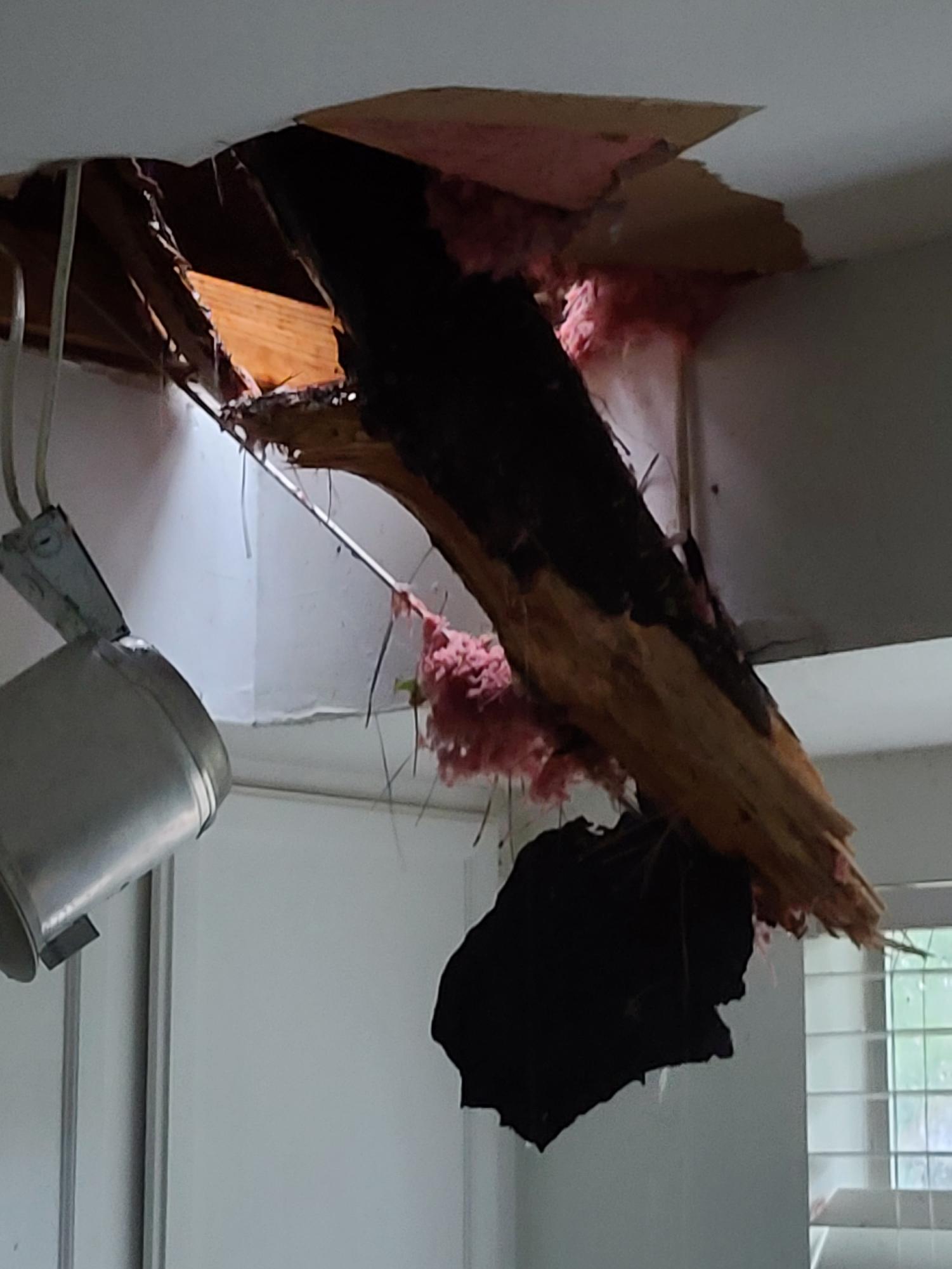
Kindergarten teacher Sando Thomas didn’t know what was in store for her and her family on the morning Beryl hit.
“I thought it was going to be a non-event for us,” Thomas said.
Sando went into this hurricane with little expectation that she would face any huge challenges, she has lived through hurricanes before in the area but has never sustained any real damage to her home.
”It was definitely more aggressive than I expected,” Thomas said.
It shocked Sando with how aggressive the storm really was given the storm had reached winds up to 80 miles per hour. It seemed all too surreal when a tree limb came through her kitchen roof inches away from her.
“I thought I was goner,” Thomas said.
Thomas said she was disappointed in her community and her insurance company with how little everyone helped out, given she has been in the community for 24 years. She is concerned for people who are thinking of becoming homeowners or buying a property in the “livable forest” with all of the natural disasters. Thomas had multiple damages sustained during the storm; her fence came down, she had multiple tree limbs fall in her backyard along with one that had fallen through her roof.
“Being a homeowner now feels so much more riskier than it did before,” she said.
Thomas has had struggles with the effects of the storm but has kept a positive outlook on how she and her family stuck together during the unfortunate events of Beryl.
“We were able to find the joy in moments, even though it was a difficult time,” Thomas said.
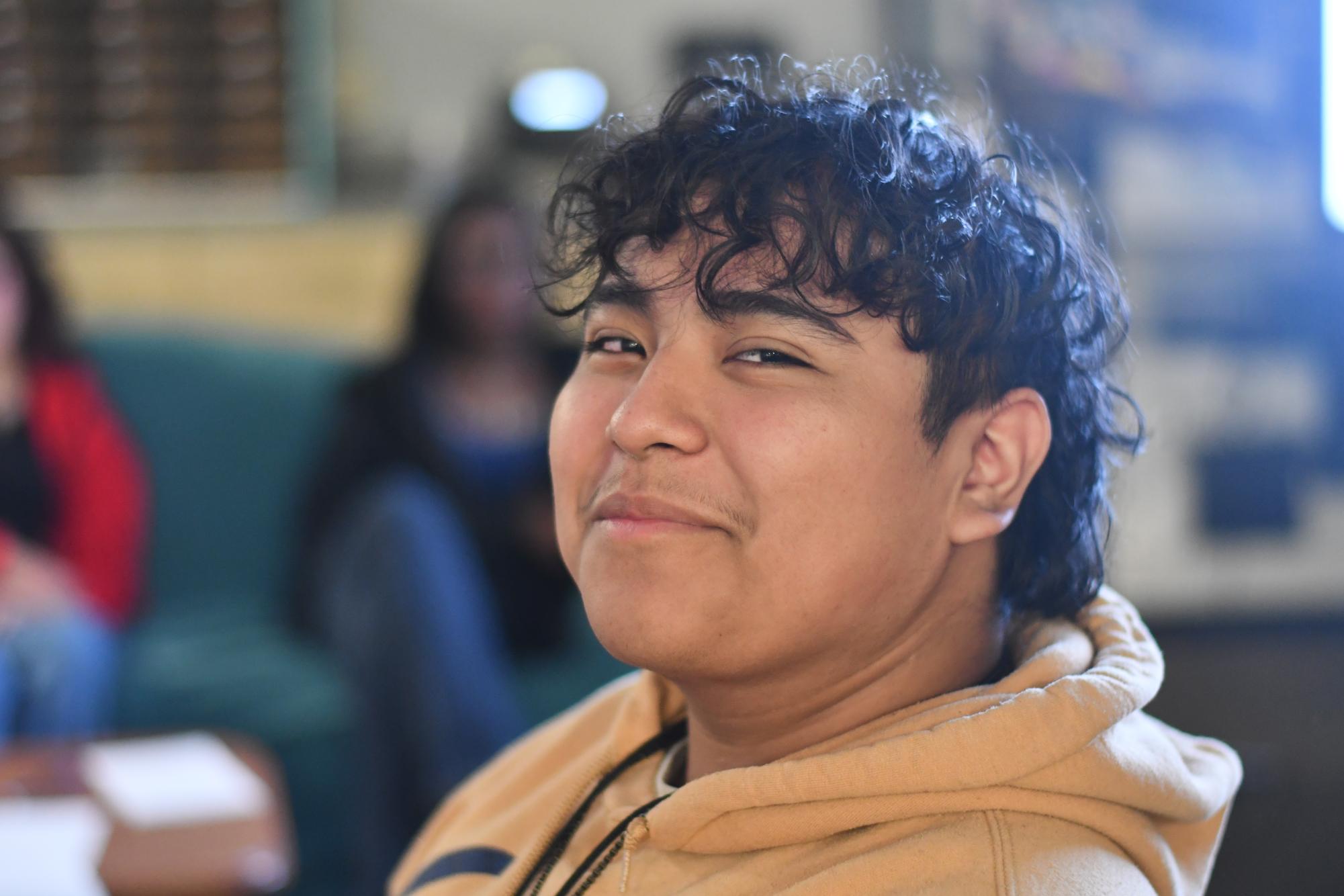
After Category 1 Hurricane Beryl made landfall in July, almost all Kingwood residents were affected, including 17-year-old junior Rocco Huerta.
Born and raised in New Caney, Rocco moved to the Kingwood area around 2020. He had experienced blizzards, freezes, tornadoes and a multitude of heavy storms. None, however, quite compared to the disaster of Beryl.
“I saw power lines hanging down to the road, a bunch of branches and trees all over the place,” Huerta said. “A house I saw destroyed, cut right down the middle when a big tree fell through.”
Huerta was staying the night at a friend’s house when the hurricane hit. He was awoken from his sleep by the sound of thunder and the air conditioner losing power.
After the storm hit, Huerta was not able to return home.
“[We had] no power, I had to keep moving from hotel to hotel the first couple of weeks,” Huerta said. “And then [we went] to my aunt’s house before going back.”
Like many of his classmates and fellow residents of Kingwood, Huerta was disappointed with the response to the storm by the power provider CenterPoint Energy.
“At my house, we lost power for about three weeks, they did a bad job of coming to our place,” Huerta said. “CenterPoint was unprepared for anything. They weren’t even prepared when they knew what was coming.”
During the weeks without power and trekking from shelter to shelter, Huerta turned to the one thing all teenagers can lean on – his phone.
“What helped me the most? The phone,” he laughed. “Yeah, this phone. Couldn’t survive without it.”
Shawn Chaney Sr. and his small family were affected by Hurricane Beryl, however, they soon realized that they were very lucky compared to many other families more severely affected by the hurricane and its aftermath.
“Well, it was very helpful having a generator,” Chaney said.
Chaney invited his girlfriend and her son to stay with Chaney and his son while the power was out since he had a generator. His girlfriend has two cats, but she had to leave them at her house because Chaney’s son is allergic to cats.
Being in such close quarters during the storm was a challenge at times.
“I learned that my son doesn’t like to be cramped up with other people,” Chaney said.
Chaney planned on sharing an air mattress with his son in the kitchen, because he had used the generator to power a small air conditioning unit in the kitchen so it was the only cooled room. But his son doesn’t like sleeping in the same room with someone else, so his son slept in his hot room by himself with his window open.
Chaney’s house’s temperature was fine for the first couple of days without power before the cool air leaked out of the house. After that, trying to go to sleep in a room that wasn’t cooled was unbearable.
“Who helped me? No one,” Chaney said.
Chaney was pretty much on his own when it came to dealing with Hurricane Beryl and its aftermath. He was the one helping others after the storm.
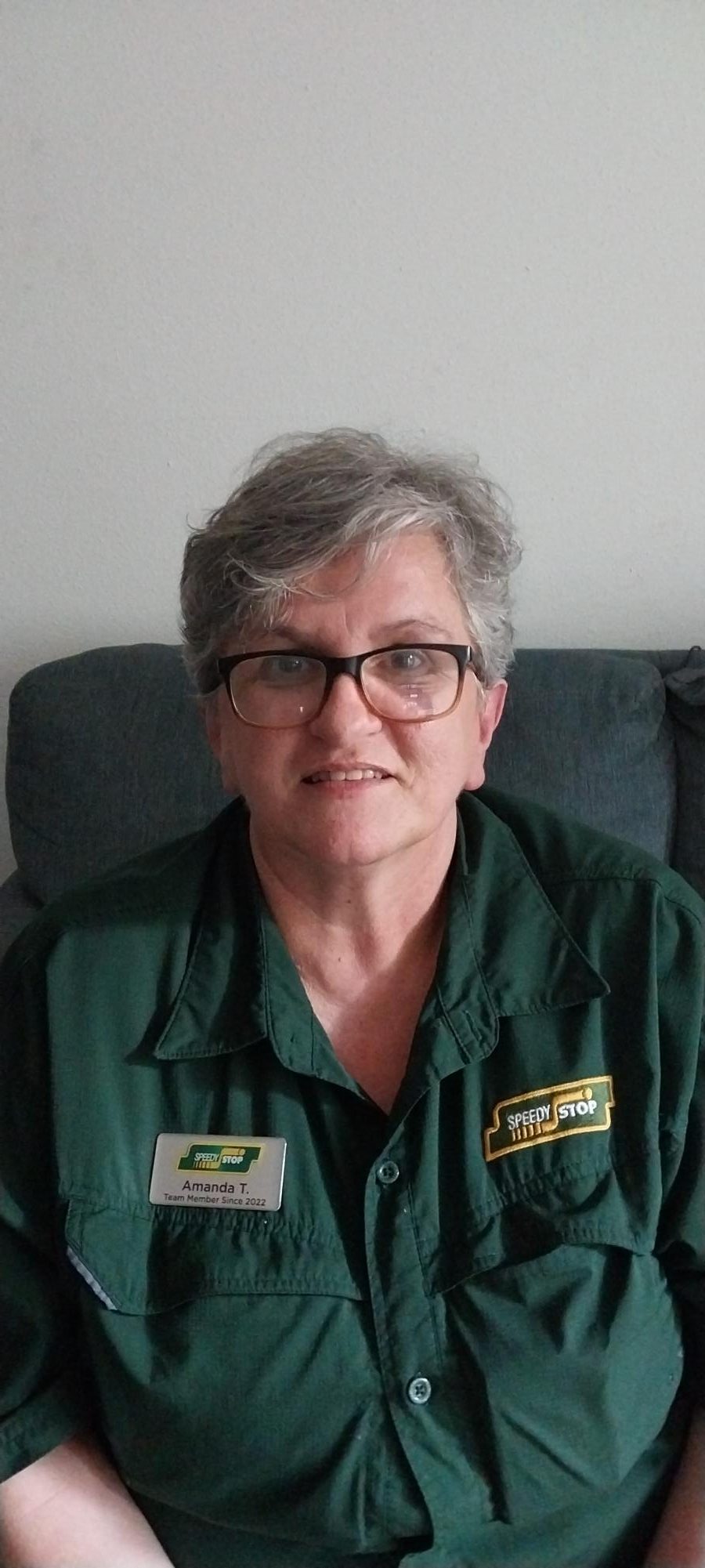
During hurricane Beryl, people had to leave their homes for various reasons, trying to find open stores, cooling centers and even charging centers. One of the most sought after things was gas.
During the hurricane, everyone lost power, and businesses were no exception. When places got generators running, there was often a line of cars waiting to get to the business. The night the SpeedyStop gas station got power, they were hit with traffic almost immediately.
“People just kept fighting for those parking spots and gas,” said Amanda Tinkham, who was working that night. “It’s not like we were going to run out, because we got sometimes three deliveries a day.”
Tinkham said that during the aftermath of Hurricane Beryl, the lines would get so long they would lead out of the parking lot. Eventually, the police got involved and helped direct the traffic to the pumps in a safe manner. In return, the SpeedyStop employees offered the officers a gas pump all to themselves so they could refill and continue to help people around Kingwood.
As a reward the officers came by a few weeks later and offered the employees of SpeedyStop a plaque commemorating them for their hard work and dedication to helping people in need.
“We got a plaque just a couple weeks ago,” Tinkham said. “They came in and presented it to us for helping them out. “I’m like, ‘Well, we helped you out. You helped us with directing traffic and keeping people level-headed.’ It just turned out really great.”
Your donation will support the student journalists of Kingwood Park High School. Your contribution will allow us to purchase equipment and cover our annual website hosting costs. The journalism program at Kingwood Park is funded solely from student sold advertisements and community support.

